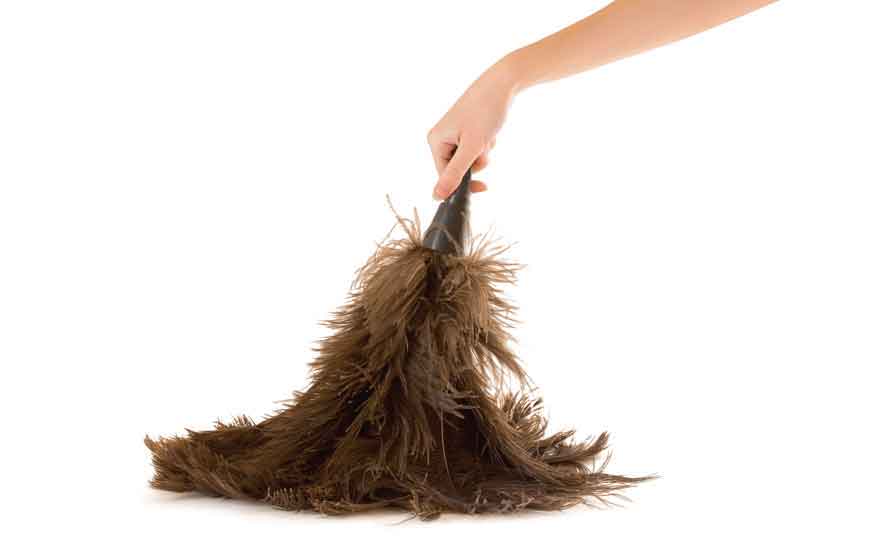
Many of us look forward to springtime through the cold winter months, but fleas and ticks look forward to warmer weather too. It’s important to safely protect your pets against these disease-carrying pests, but protection can be complicated.
Doctor Alexandra Barrientos of Earth Angels Veterinary Hospital in Wappingers Falls said that there is no 100 percent protection against ticks. Even powerful pesticides that have long-term effects cannot guarantee full immunity.
“Your number one defense is to check yourself and your pets for ticks after spending time outside,” she said. “The other best way to defend yourself is to use a combination of repellants and pesticides, but products like Frontline and Advantix can leave a large footprint.”

Barrientos suggested using natural repellants regularly and to adding stronger products like pesticides during the spring and fall when ticks are a greater threat.
“We don’t know what the long-term effects of pesticides will be,” she said, “but we know that no pesticide is a good pesticide because they remain active forever.”
“Your number one defense is to check yourself and your pets for ticks after spending time outside,” she said. “The other best way to defend yourself is to use a combination of repellants and pesticides, but products like Frontline and Advantix can leave a large footprint.”

Citrus is top dog for your dog... or other pet.
Citrus repels both fleas and ticks. petMD suggested lightly rubbing the juice of a freshly squeezed orange or lemon onto your pet to ward off pests. However, limonene, an oil found in citrus fruits, can be harmful to pets, so beware of rinds.

Clean, clean, clean!
Messy homes give fleas a space to multiply and ticks a place to hide, so be sure to clean floors frequently and launder bedding often. Don’t forget those pet beds!
You can also use diatomaceous earth (DE). It’s a soft, powdery substance made up of the fossilized remains of diatoms, a type of algae. The tiny fossilized diatoms will act as shards of glass, cutting into flea larvae’s soft exoskeletons.Robin Tierney of the Partnership for Animal Welfare in Washington, DC said DE can be sprinkled around baseboards, under furniture, in cracks, and on hard-to-reach areas, but she cautioned against using the glassified type used in pools.

Essential oils—my favorite!
Fleas and ticks literally cannot breathe when they inhale essential oils, making them a great method for flea and tick prevention. petMED said the most effective and safest essential oil for this purpose is rose geranium. It can be applied directly to your dog’s collar.
However, essential oils are not safe to use on cats because felines groom with their tongues. You do not want your kitty ingesting essential oils because feline livers just cannot handle it; so, steer clear of this one if you’re a cat owner.
Doctor Barrientos stated that she trusts store-bought essential oil products more than self-made mixes because store brands can balance ingredients well. She recommends Honey Birch Farms and Earth Animals products.

Bath time!
Fleas hate water. Since they burrow into fur rather than latching onto skin or grasping at hair shafts, something as simple as dousing your pet in water may be enough to get most fleas off.
The tricky thing is that fleas try to escape water by jumping off your pet, but trapping them is simple. Just apply natural pet shampoo or dish soap to your pet before you start the water.
Tierney suggested washing around your pet’s neck first to keep fleas away from the animal’s head.

Yard maintenance is key
The easiest way to naturally prevent ticks and fleas from living near and entering your home is to always rake leaves and keep grass cut short, according to petMD.
Ticks and fleas thrive in grassy areas, so leave one patch of longer grass on an unused part of your property to give them their own space and keep them away from you and your pets.
You can also invest in beneficial nematodes, which are microscopic worms that feed off of flea larvae. According to Tierney, they are harmless to humans and pets and even help to control other nuisance insects. Beneficial nematodes can be found at most garden or pet shops.

Apple cider vinegar
The smell of apple cider vinegar is appalling to fleas and ticks, but it is safe for your pets and not so stinky for you. Tierney suggested adding a tablespoon of organic apple cider vinegar to water bowls to kill any unwanted internal parasites. The scent will also come out through your pet’s pores, repelling fleas and ticks.
Tierney suggested washing around your pet’s neck first to keep fleas away from the animal’s head.

Try ladybugs!
They’re more than just cute and lucky! They love feasting on smaller, soft-bodied insects like fleas. petMD said a mature ladybug can consume an average of up to 50 insects in a single day. Multiply that by the number of ladybugs on your property and you’re golden!
Try these natural flea and tick remedies out on your pets this spring!
For more information from Robin Tierney, visit: www.paw-rescue.org/PAW/PETTIPS/DogTip_InsectPrevention.php
Earth Angels Veterinary Hospital
44 Saint Nicholas Road, Wappingers Falls
845-227-7297
earthangelsvet.com

